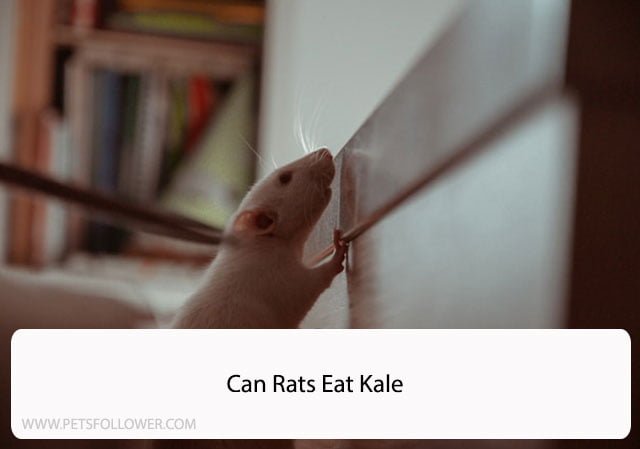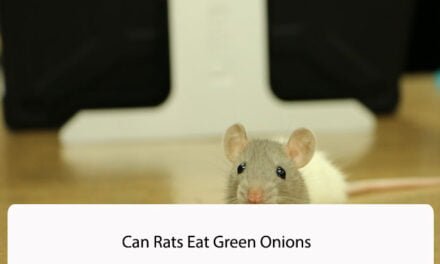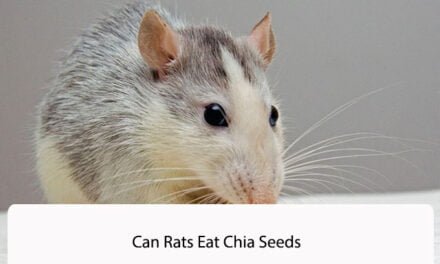Rats are known to have a diverse diet that includes fruits, vegetables, grains, and meat. As pet owners, it’s essential to ensure that our furry friends are getting a balanced diet to maintain their health and well-being. Kale is a leafy green vegetable that has become increasingly popular in recent years due to its high nutritional value. But the question remains, can rats eat kale?
The answer is yes, rats can eat kale. In fact, kale is an excellent source of vitamins A, C, and K, as well as calcium and iron. These nutrients are essential for maintaining healthy bones, skin, and immune systems. However, it’s important to note that kale should only be given to rats in moderation as too much can cause digestive issues. Additionally, it’s important to thoroughly wash the kale before feeding it to your rat to remove any pesticides or other harmful chemicals.
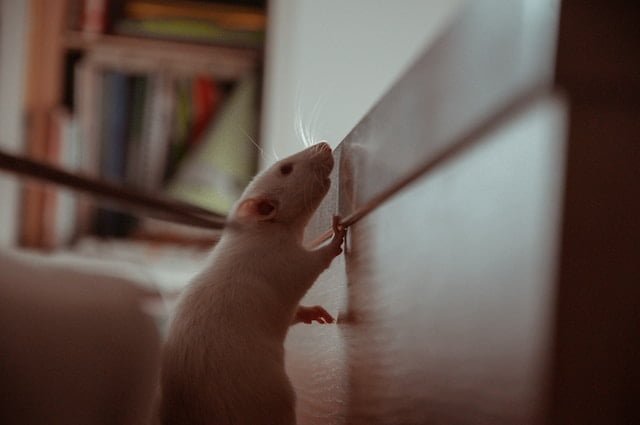
Understanding Rat Diets
When it comes to feeding rats, it is important to understand their dietary needs. Rats are omnivores, which means they can eat both plants and animals. However, their diet should consist mostly of plant-based foods.
In the wild, rats eat a variety of foods, including seeds, nuts, fruits, and vegetables. They also eat insects, small animals, and even carrion. As pets, rats should be fed a balanced diet that meets their nutritional needs.
A good rat diet should consist of:
- Pellets: A high-quality rat pellet should be the main component of a rat’s diet. These pellets are designed to provide the necessary nutrients for rats.
- Fresh fruits and vegetables: Rats should be given a variety of fresh fruits and vegetables every day. Some good options include kale, carrots, apples, and bananas.
- Protein: Rats need protein in their diet to stay healthy. Good sources of protein include cooked chicken, eggs, and tofu.
- Treats: Rats enjoy treats just like humans do. However, treats should only be given in moderation. Good options include small amounts of cheese, cooked pasta, and cooked rice.
It is important to note that rats should not be fed junk food, sugary foods, or foods that are high in fat. These types of foods can lead to health problems such as obesity and dental issues.
In conclusion, understanding a rat’s dietary needs is crucial to their health and well-being. A balanced diet consisting of pellets, fresh fruits and vegetables, protein, and treats in moderation will provide rats with the necessary nutrients they need to thrive.
Kale: A Brief Overview
Kale is a leafy green vegetable that has become increasingly popular in recent years due to its many health benefits. It is a member of the cruciferous vegetable family, which also includes broccoli, cauliflower, and Brussels sprouts. Kale is low in calories but high in nutrients, making it an excellent addition to any diet.
One of the most significant benefits of kale is its high vitamin content. It is an excellent source of vitamin C, vitamin K, and vitamin A. Additionally, it contains small amounts of other essential vitamins and minerals, such as calcium and iron.
Kale is also rich in antioxidants, which can help protect the body from damage caused by free radicals. These antioxidants may help reduce the risk of chronic diseases, such as cancer and heart disease.
Overall, kale is a nutritious and versatile vegetable that can be enjoyed in a variety of ways. Whether you prefer it raw in a salad or cooked in a stir-fry, adding kale to your diet is an easy way to boost your nutrient intake and support your overall health.
Can Rats Eat Kale?
Kale is a popular vegetable that is known for its high nutritional value. It is a member of the Brassica family, which includes other vegetables such as broccoli, cauliflower, and Brussels sprouts. As a result, many people wonder if rats can eat kale.
We have researched and found that rats can indeed eat kale. In fact, kale is a great source of vitamins and minerals for rats. It is low in fat and high in fiber, making it a healthy addition to their diet.
However, it is important to note that kale should not be the only food in a rat’s diet. Rats need a balanced diet that includes a variety of foods to meet their nutritional needs. Kale should be given in moderation, as too much can cause digestive issues.
When feeding kale to rats, it is best to wash it thoroughly to remove any pesticides or dirt. It can be served raw or cooked, but it is recommended to lightly steam it to make it easier to digest.
In summary, rats can eat kale as part of a balanced diet. It is a nutritious vegetable that can provide a variety of vitamins and minerals. However, it should be given in moderation and washed thoroughly before serving.
Benefits of Kale for Rats
Nutritional Value
Kale is a leafy green vegetable that is packed with essential vitamins and minerals that are beneficial for rats. It is a great source of vitamin C, vitamin K, vitamin A, and calcium. These nutrients are important for maintaining a healthy immune system, strong bones, and good eyesight.
In addition, kale is also rich in antioxidants, which can help protect rats from oxidative stress and prevent cellular damage. These antioxidants include beta-carotene, lutein, and zeaxanthin.
Hydration
Kale is also a great source of hydration for rats. It has a high water content, which can help keep rats hydrated and prevent dehydration. This is especially important during hot weather or if your rat is sick and not drinking enough water.
Digestive Health
Kale is high in fiber, which can help promote good digestive health in rats. It can help regulate bowel movements and prevent constipation. Additionally, the fiber in kale can also help rats feel full and satisfied, which can prevent overeating and obesity.
It is important to note that while kale can be a healthy addition to a rat’s diet, it should not be the only food they eat. Rats require a balanced diet that includes a variety of fruits, vegetables, grains, and protein sources. It is also important to wash kale thoroughly before feeding it to your rat to remove any pesticides or dirt.
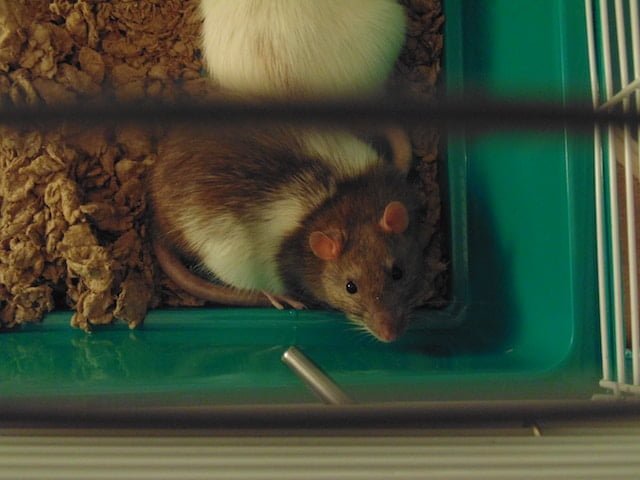
Potential Risks of Feeding Kale to Rats
Oxalic Acid
Kale contains a high amount of oxalic acid, which can bind with calcium and other minerals in the body and form crystals. These crystals can then accumulate in the kidneys and cause kidney stones. While rats are not as susceptible to kidney stones as humans, it is still a potential risk that should be considered when feeding kale to rats.
Gas and Bloating
Feeding too much kale to rats can also lead to gas and bloating. This is because kale contains raffinose, a complex sugar that is difficult to digest. When rats eat too much kale, the raffinose can ferment in the gut and produce gas, leading to discomfort and bloating.
It is important to note that while kale does pose some potential risks to rats, it can still be a healthy addition to their diet in moderation. As with any new food, it is important to introduce kale slowly and monitor your rat’s reaction to it. If you notice any signs of discomfort or digestive upset, it may be best to limit their intake or avoid feeding them kale altogether.
How to Feed Kale to Your Rat
Preparation
Before feeding kale to your rat, it is important to properly prepare it. First, rinse the kale thoroughly under running water to remove any dirt or debris. Then, remove the tough stems and chop the leaves into small, bite-sized pieces.
It is also important to note that kale should be served raw, as cooking can destroy some of the nutrients that make it a healthy addition to your rat’s diet.
Frequency
Kale should be fed to your rat in moderation. While it is a nutritious vegetable, it should not make up a large portion of their diet. We recommend feeding kale to your rat no more than once or twice a week, as part of a varied and balanced diet.
It is also important to observe your rat’s reaction to kale. Some rats may not enjoy the taste or texture, while others may experience digestive issues such as gas or bloating. If you notice any adverse reactions, it may be best to limit or avoid feeding kale to your rat.
In summary, kale can be a healthy addition to your rat’s diet when fed in moderation and prepared properly. By following these simple guidelines, you can ensure that your rat receives all the benefits of this nutritious vegetable.
Alternatives to Kale for Rats
While kale can be a nutritious addition to a rat’s diet, it’s not the only option. Here are some other vegetables that rats can eat:
- Spinach: Like kale, spinach is a leafy green that’s high in vitamins and minerals. Rats can enjoy it raw or cooked.
- Carrots: Carrots are a great source of beta-carotene, which can help keep rats’ eyes healthy. They can be given raw or cooked.
- Peas: Peas are a good source of protein and fiber. Rats can eat them raw or cooked.
- Broccoli: Broccoli is another vegetable that’s high in vitamins and minerals. Rats can eat it raw or cooked.
- Cucumber: Cucumber is low in calories and high in water content, making it a refreshing treat for rats. They can eat it raw or cooked.
- Squash: Squash is a good source of fiber and vitamin C. Rats can eat it raw or cooked.
It’s important to note that while these vegetables are safe for rats to eat, they should still be given in moderation. Rats need a balanced diet that includes a variety of foods, including a good quality rat food. It’s also important to wash all vegetables thoroughly before giving them to your rats to remove any pesticides or other contaminants.
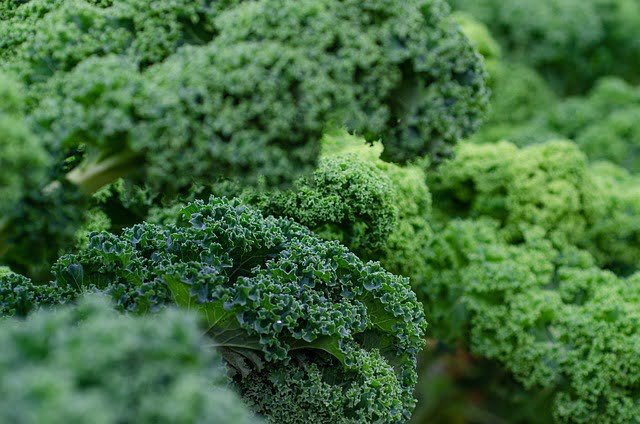
Frequently Asked Questions
What fruits are safe for rats to eat?
Rats can enjoy a variety of fruits in moderation. Some safe options include apples, bananas, grapes, strawberries, blueberries, raspberries, and pears. However, it’s important to remember that fruits are high in sugar and should only be given to rats as an occasional treat.
What vegetables are safe for rats to consume?
Vegetables are an important part of a rat’s diet. Safe options include carrots, green beans, peas, sweet potatoes, squash, zucchini, and bell peppers. However, rats should not be given too many vegetables as they can cause digestive issues.
Can rats eat tomatoes?
Yes, rats can eat tomatoes in moderation. Tomatoes are high in vitamin C and other nutrients that can benefit a rat’s health. However, the leaves and stems of the tomato plant are toxic to rats and should be avoided.
Can rats eat broccoli?
Broccoli is safe for rats to eat in moderation. It’s a good source of vitamin C and other nutrients. However, too much broccoli can cause digestive issues, so it’s important to only give it to rats in small amounts.
What leafy greens are safe for rats to consume?
Leafy greens are an important part of a rat’s diet. Safe options include kale, spinach, romaine lettuce, and arugula. However, rats should not be given too many leafy greens as they can cause digestive issues.
Can rats eat cilantro?
Yes, rats can eat cilantro in moderation. It’s a good source of vitamin C and other nutrients. However, some rats may not like the taste of cilantro, so it’s important to introduce it slowly and in small amounts.

